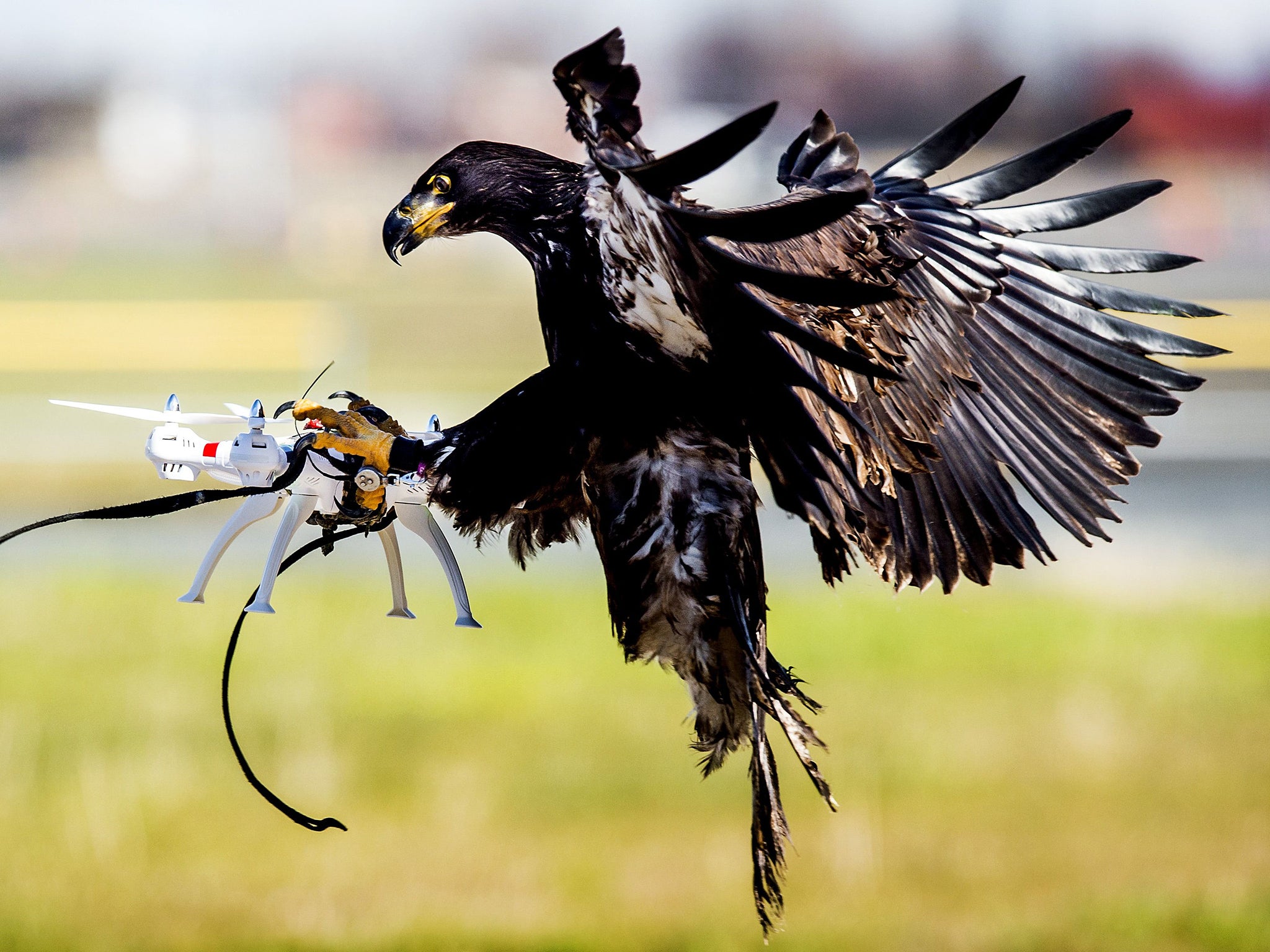Is that a drone, coming to take your job?
Infrastructure and agriculture are obvious areas where drones or other automated technology could take over - but what about the media?

What is that humming sound coming from somewhere above your head? According to a report from the consulting firm PwC, it is a drone, coming to take your job. Not all of them will look like the four-rotor gadgets people use in their local park twice and then put away in the attic because they are a bit pointless. The report forecasts that intelligent robots will replace up to $127bn (£88bn) worth of human labour over the next four years worldwide.
The most important sector is infrastructure (which makes sense given the cost of putting up scaffolding), followed by agriculture. It may be a while before driverless cars are let loose on the roads, but a driverless tractor could plough a field without putting anyone at risk.
Even so, transport is the third category. Those of us who may have been alarmed by Chancellor George Osborne’s announcement in the Budget this year that the Government was going to allow trials of “truck platooning” on Britain’s motorways will have to start getting used to the idea.
In fourth place comes security, which is surely a welcome chance to reduce the numbers working in the most boring job after supermarket till assistant: security guard.
We are a little concerned, however, that “media and entertainment” is fifth on the list, with $8.8bn (£6bn) of robotised work. Do they mean us?
But we also note one omission. The sector “consultancy and forecasting” is missing from the the list. We suspect that, from a firm with a name like PwC, the report has been produced by a highly intelligent machine.
Join our commenting forum
Join thought-provoking conversations, follow other Independent readers and see their replies
Comments